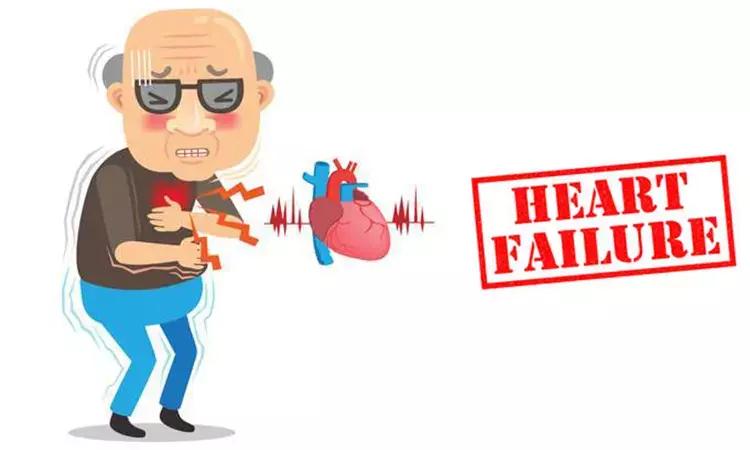Existing Heart Failure Drug May Treat Potential COVID-19 Long-Hauler Symptom
- byDoctor News Daily Team
- 23 July, 2025
- 0 Comments
- 0 Mins

In a new study out of University of California San Diego School of Medicine, researchers found a drug used for heart failure improves symptoms associated with postural orthostatic tachycardia syndrome, otherwise known as POTS. This complex, debilitating disorder affects the body's autonomic nervous system, causing a high heart rate, usually when standing.
Writing in the February 15, 2021 online issue of the Journal of the American College of Cardiology, study authors investigated the drug ivabradine and its effects on heart rate, quality of life and plasma norepinephrine levels in persons living with POTS. Norepinephrine is a stress hormone and neurotransmitter. In blood plasma, it is used as a measure of sympathetic nervous system activity. Trial participants experienced a reduction in heart rate, improvement in their symptoms and overall quality of life one month after taking the drug.
"Ivabradine is a novel agent that's FDA-approved for heart failure, but based on its mechanism we thought it could be helpful for patients with POTS as it reduces heart rate without impacting blood pressure," said Pam Taub, MD, cardiologist at the Cardiovascular Institute at UC San Diego Health and associate professor of medicine at UC San Diego School of Medicine. "When we can lower the heart rate, we're providing these patients with the ability to stand up, something they couldn't do without difficulty before due to their POTS diagnosis."
The study involved 22 individuals whose average age was 32 years. Each participant had been screened and recruited from cardiology clinics at UC San Diego Health from 2018 to 2020.
The study utilized a randomized, double-blinded, placebo-controlled crossover design in which patients started on either ivabradine or a placebo for one month. At the end of the month, all participants underwent a washout period where neither drug nor placebo was taken for one week. After the washout period, the participants who had previously received ivabradine switched to placebo and vice versa for one month.
Over the course of the two months, patients also met with researchers for seven different clinic visits in which plasma norepinephrine levels were measured and head-up tilt testing conducted to observe the patient's heart rate when sitting, lying down or standing up.
"Before the study, these patients would be living with elevated heart rates ranging between 100 to 115 beats per minute when standing," said Taub. "After taking ivabradine twice a day for one month, the standing heart rate decreased significantly to around 77 beats per minute compared to the placebo group. Participants also reported improvement in quality of life measures when on the drug."
The researchers also noted ivabradine was well-tolerated with no significant side effects while other drugs used to lower heart rate, such as beta blockers, can cause fatigue and decreased blood pressure.
Taub said the study was the first randomized clinical trial using ivabradine to treat POTS.
POTS is typically caused by a viral infection, trauma, surgery or enforced bedrest, and most commonly affects young women who are either athletes or highly active. Currently, there is no FDA-approved treatment for POTS and the condition can severely impact quality of life. Other symptoms of POTS include "brain fog," lightheadedness, palpitations, tremors, weakness, blurry vision and fatigue.
Recently, POTS has been identified as a potential "long-hauler" symptom of COVID-19.
"In our contemporary practice, we are seeing patients who have previously been infected with COVID-19 present with symptoms consistent with POTS," said Jonathan Hsu, MD, cardiologist at UC San Diego Health. "Given the similarities, this study leads to the question whether therapy with ivabradine may help patients who experience similar symptoms after a COVID-19 infection, and provide an important area for future study as well."
The authors said they hope ivabradine will be considered as a possible treatment option for those with a confirmed diagnosed of POTS. Currently, the drug is not FDA-approved for the disease and when used clinically it would be "off-label" use.
"Similar to patients with COVID-19, patients with POTS need to be followed carefully," said Taub. "Treatment for POTS needs to be personalized for each individual and with this drug, paired with lifestyle therapy, including exercises specific for POTS, we hope we will see more individuals overcome this unfortunate condition."
https://www.sciencedirect.com/science/article/abs/pii/S0735109720381316?via=ihub
Disclaimer: This website is designed for healthcare professionals and serves solely for informational purposes.
The content provided should not be interpreted as medical advice, diagnosis, treatment recommendations, prescriptions, or endorsements of specific medical practices. It is not a replacement for professional medical consultation or the expertise of a licensed healthcare provider.
Given the ever-evolving nature of medical science, we strive to keep our information accurate and up to date. However, we do not guarantee the completeness or accuracy of the content.
If you come across any inconsistencies, please reach out to us at
admin@doctornewsdaily.com.
We do not support or endorse medical opinions, treatments, or recommendations that contradict the advice of qualified healthcare professionals.
By using this website, you agree to our
Terms of Use,
Privacy Policy, and
Advertisement Policy.
For further details, please review our
Full Disclaimer.
Tags:
Recent News
Kerala waives Rs 10 lakh discontinuation penalty f...
- 09 November, 2025
Jharkhand health dept announces SOP for ICU and CC...
- 09 November, 2025
Doctors oppose Punjab govt's decision to set up me...
- 09 November, 2025
Daily Newsletter
Get all the top stories from Blogs to keep track.


0 Comments
Post a comment
No comments yet. Be the first to comment!